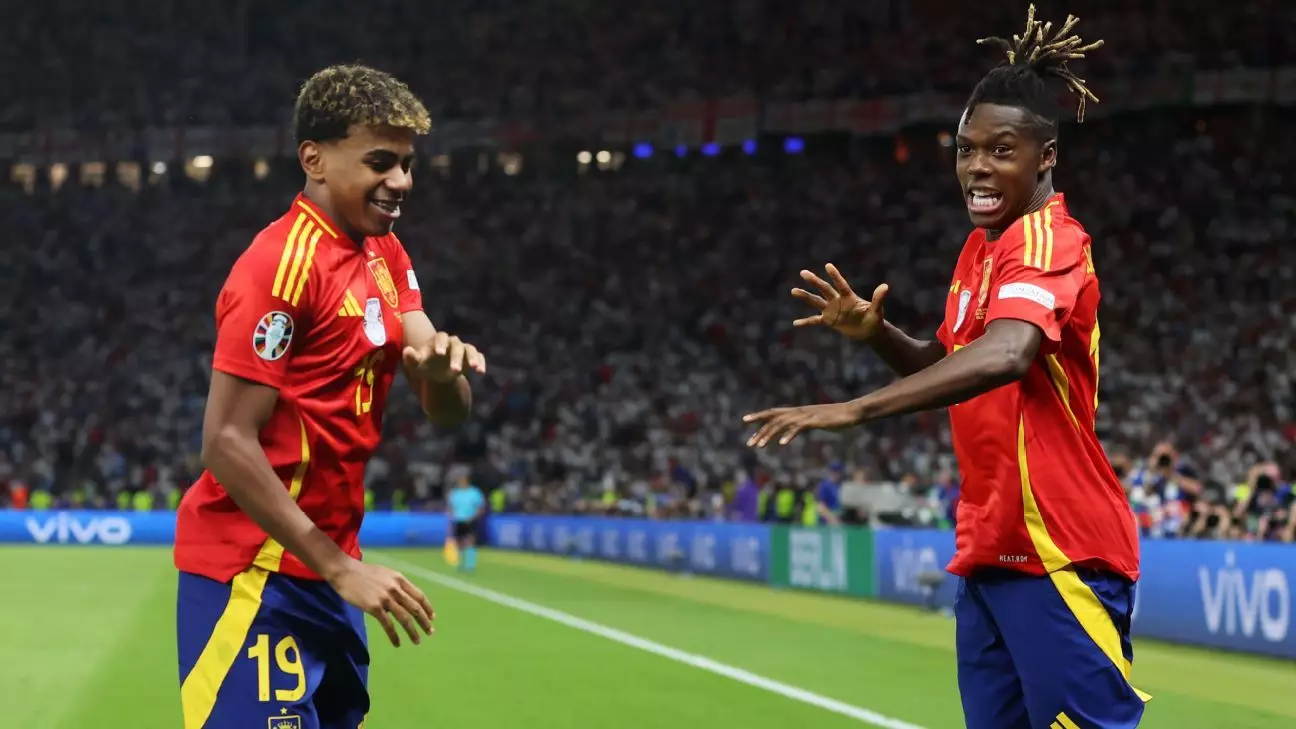Spain’s victory at the Euro 2024 marked a turning point for the national team, signaling a departure from their possession-heavy style that had dominated their play in the past. Under the guidance of coach Luis de la Fuente, the team embraced a more dynamic and versatile approach that proved to be successful in the tournament. The emphasis shifted from pure possession to a style that prioritized pace on the wings, control in the midfield, and a solid defense.
Key players like Nico Williams and Lamine Yamal emerged as symbols of this shift in Spain’s football philosophy. Their performance on the field showcased a new level of adaptability and unpredictability for the team. These young wingers brought fresh energy and intelligence to the game, allowing Spain to be more direct when needed and offering a different dimension to their attacking play.
De la Fuente’s strategic overhaul of Spain’s style was a response to the changing landscape of football tactics. The team recognized the need to evolve and incorporate new elements into their game while staying true to their roots. With players like Rodri and Fabián Ruiz bringing a physical presence to the midfield, Spain found a new balance that complemented their technical skills and positional play.
Spain’s success in recent years across different age groups and genders served as a solid foundation for their victory at the Euro 2024. The team’s ability to draw on a pool of talented players who had experienced previous triumphs in international competitions played a crucial role in their performance. This depth of talent and understanding of the game set Spain apart from other teams, allowing them to excel even without the presence of star names.
The unity and diversity within the Spanish team added another dimension to their modern identity. Players like Williams and Yamal, representing the growing multiculturalism in Spain, became symbols of inclusivity and progress. Their personal stories, rooted in immigrant backgrounds, resonated with fans across the country and highlighted the team’s commitment to embracing diversity in football.
As Spain sets its sights on the 2026 World Cup, the team’s newfound style and unity point towards a promising future. The blend of youth and experience, coupled with a modern approach to the game, positions them as contenders for upcoming international tournaments. With players like Williams and Yamal leading the charge, Spain’s footballing evolution promises exciting prospects for years to come.
Spain’s transformation from a possession-oriented team to a more dynamic and versatile side reflects the changing nature of football tactics and the team’s willingness to adapt to these shifts. The success at the Euro 2024 was not just a triumph on the field but a statement of intent for the future of Spanish football. As they continue to refine their style and embrace diversity both on and off the pitch, Spain looks poised to build on their recent success and compete at the highest level on the international stage.

